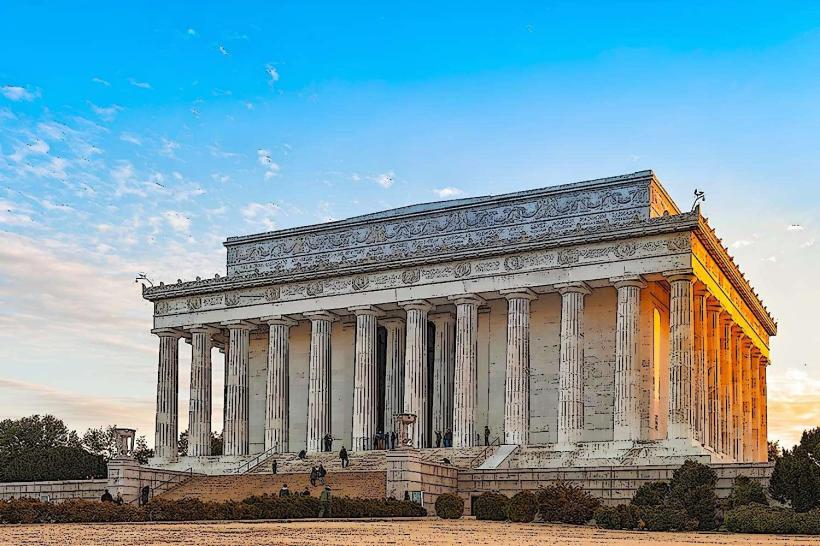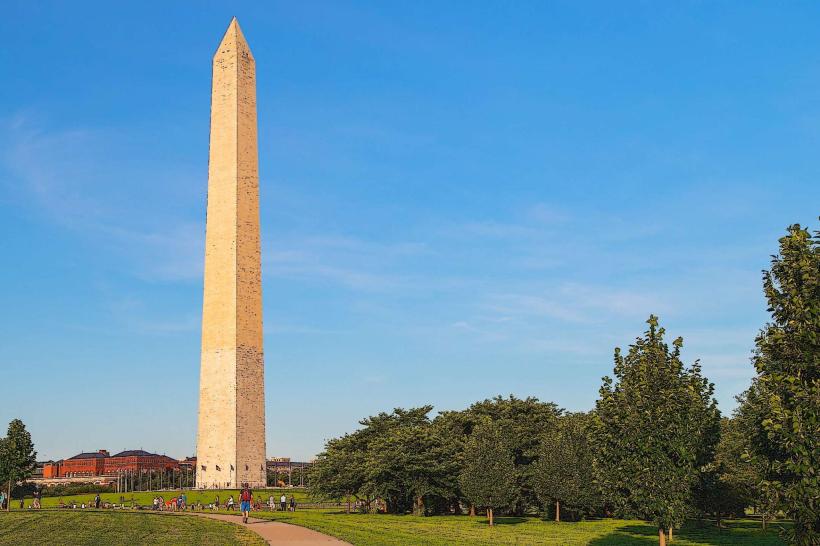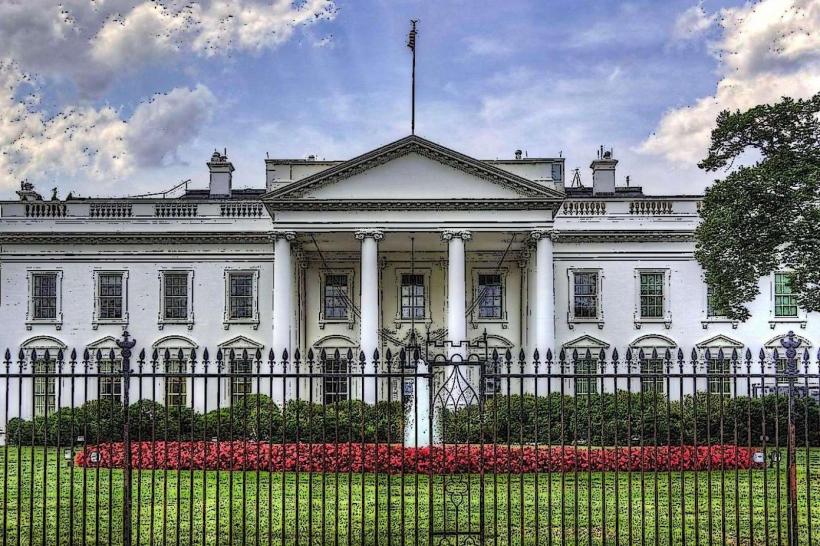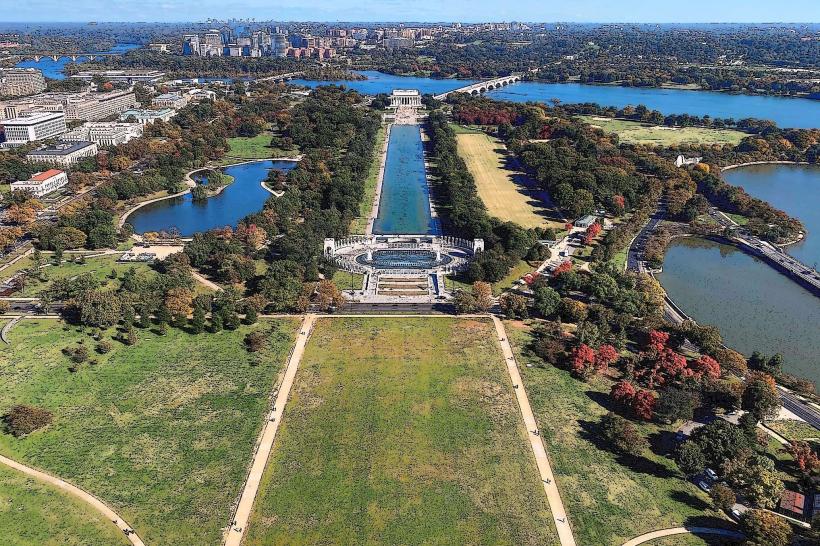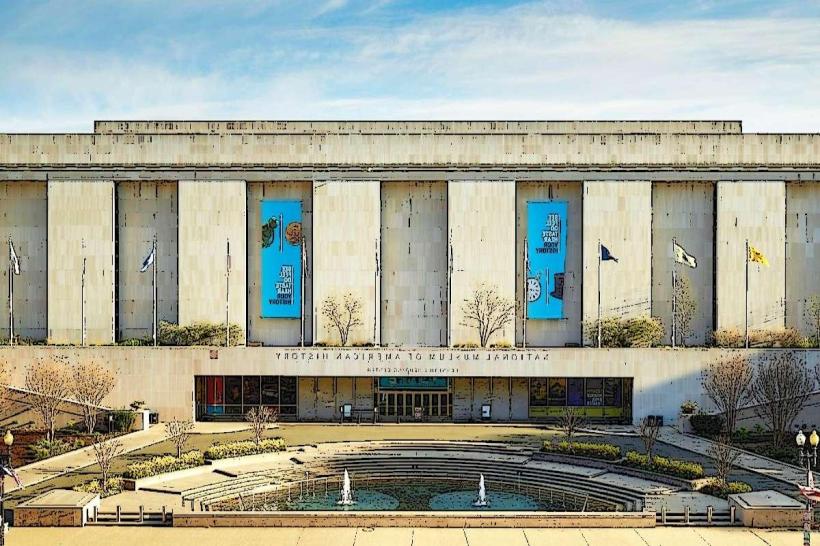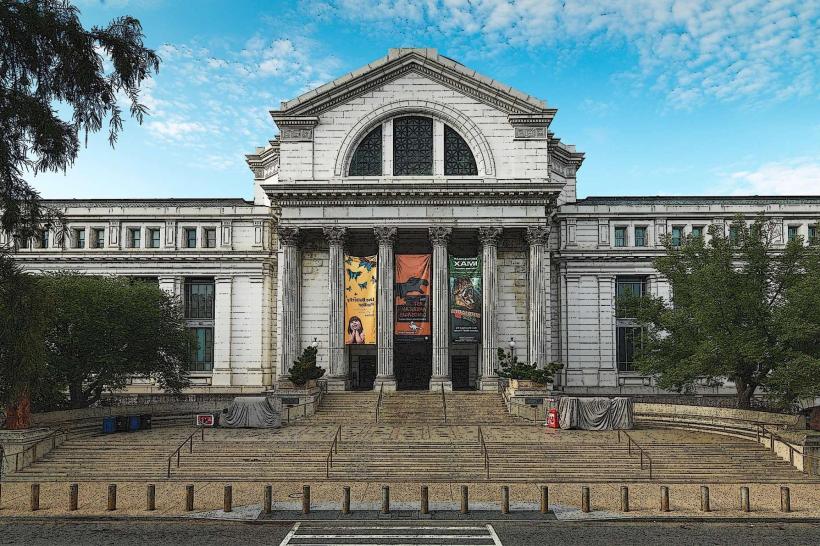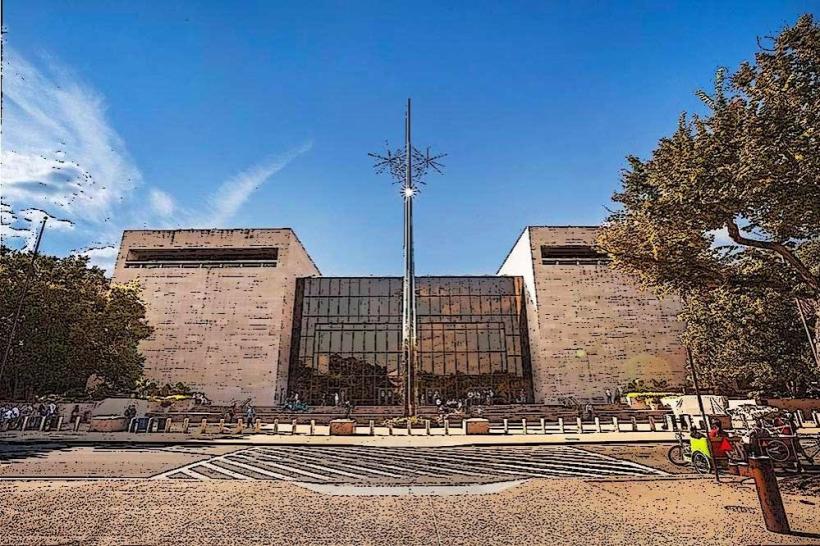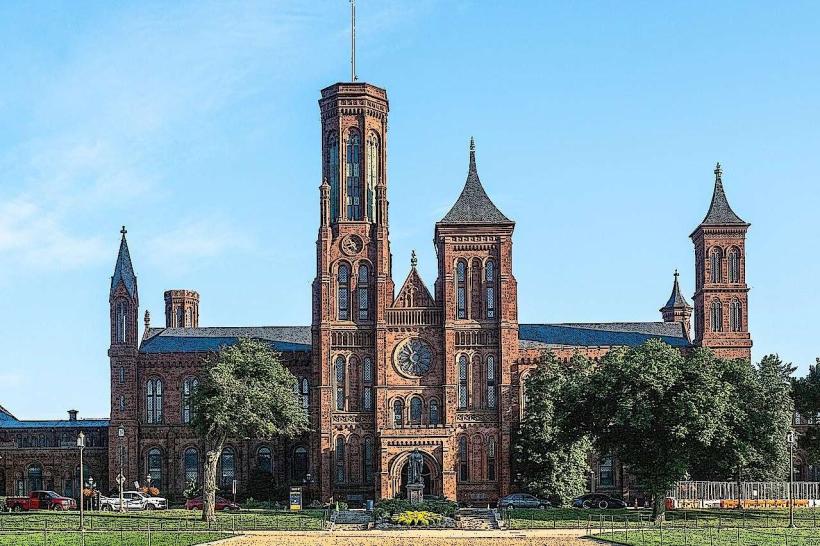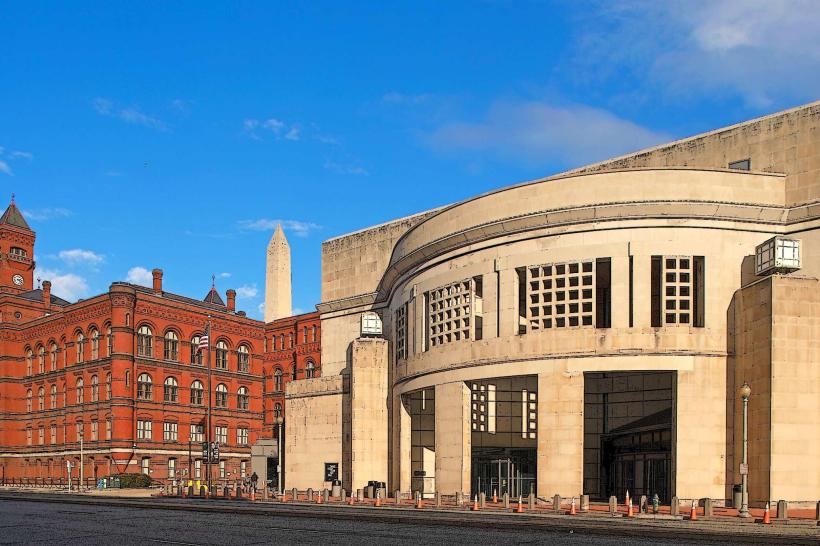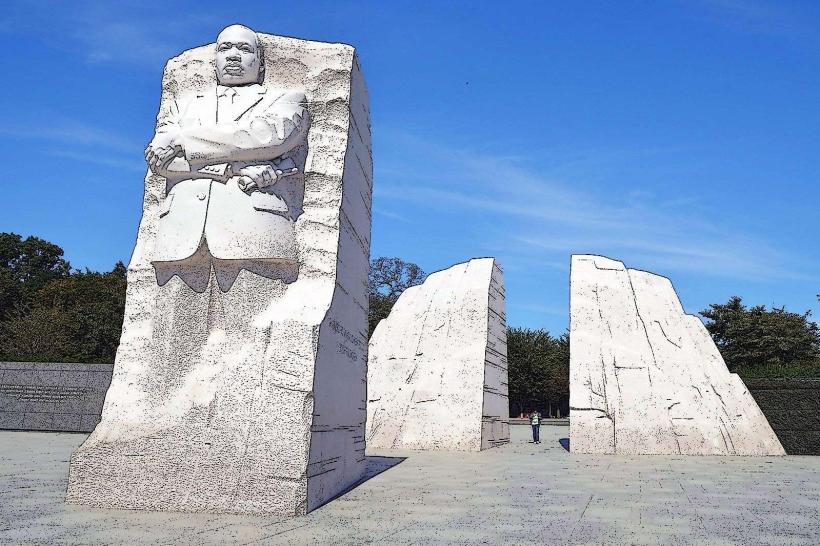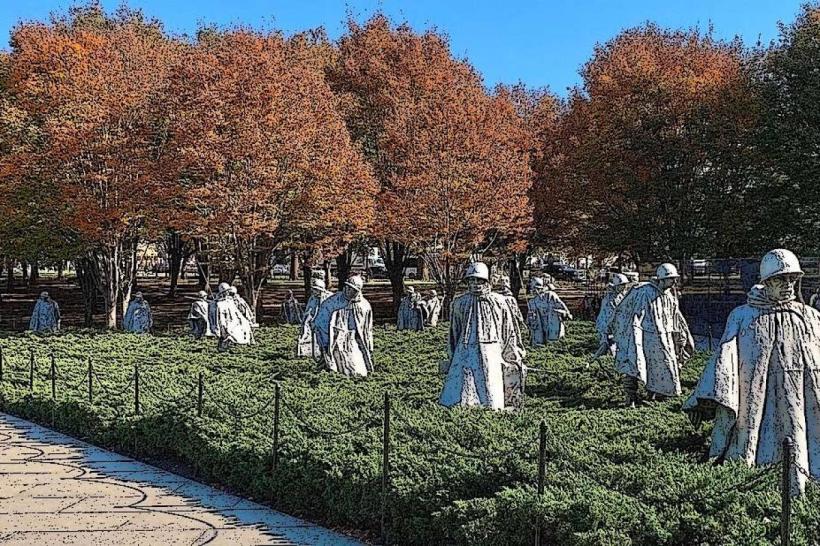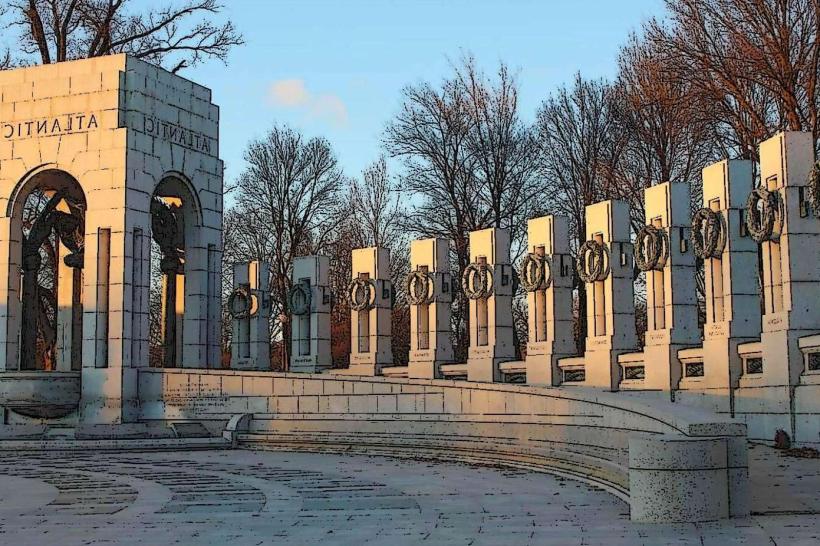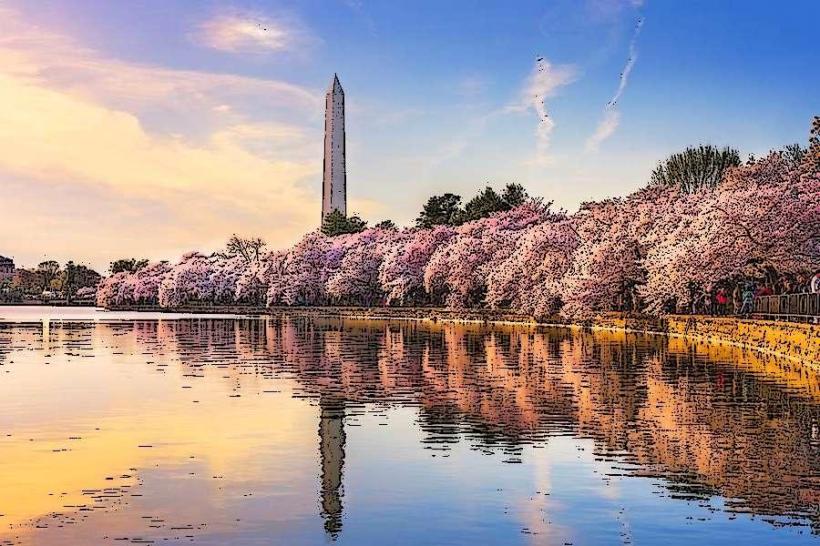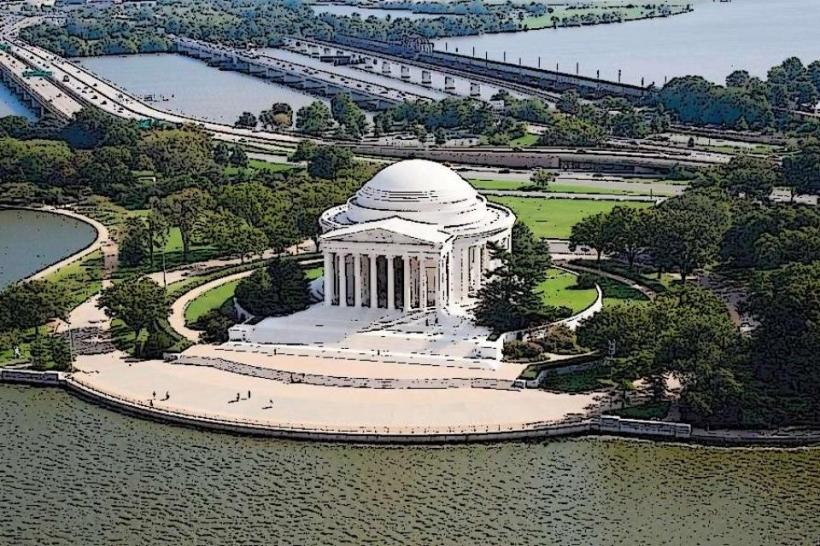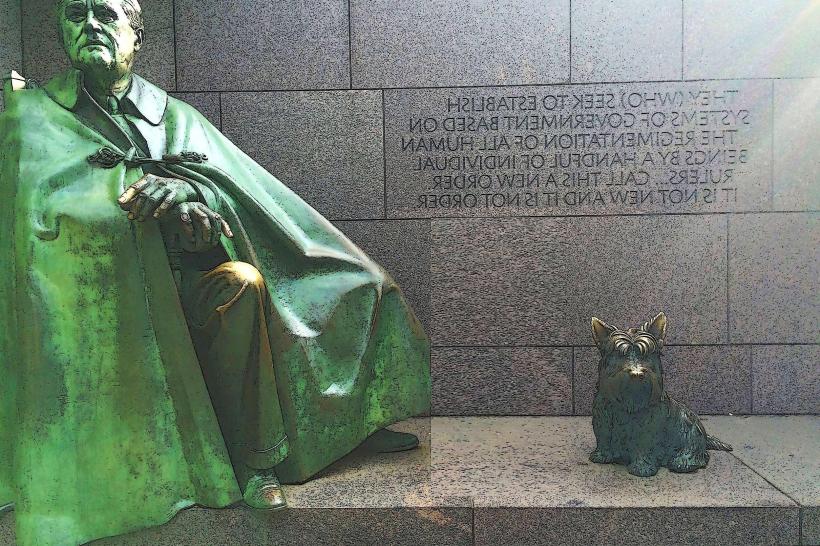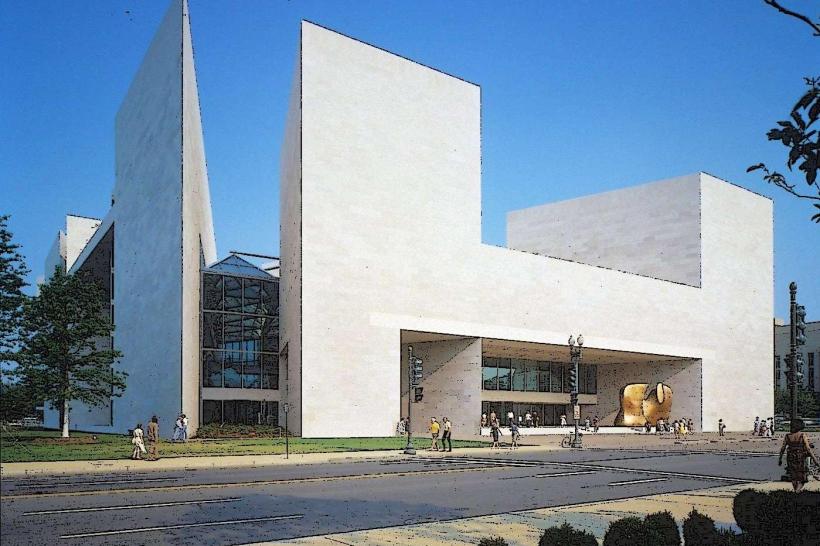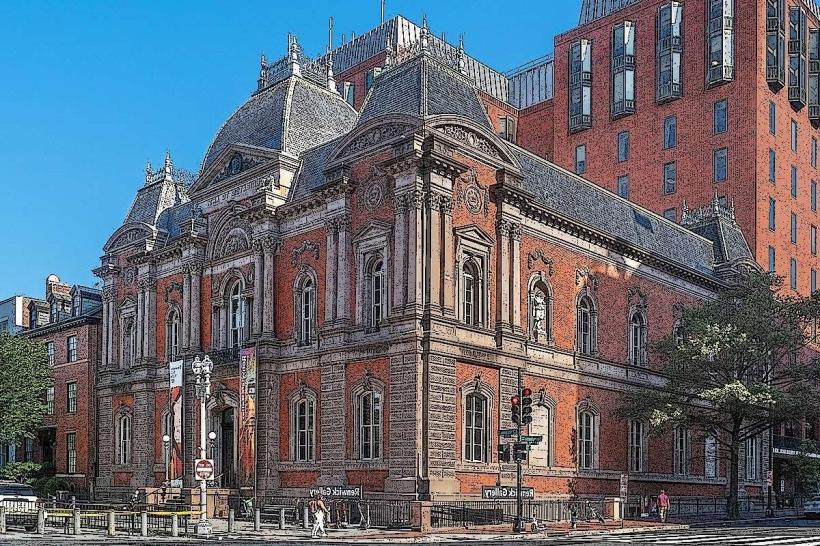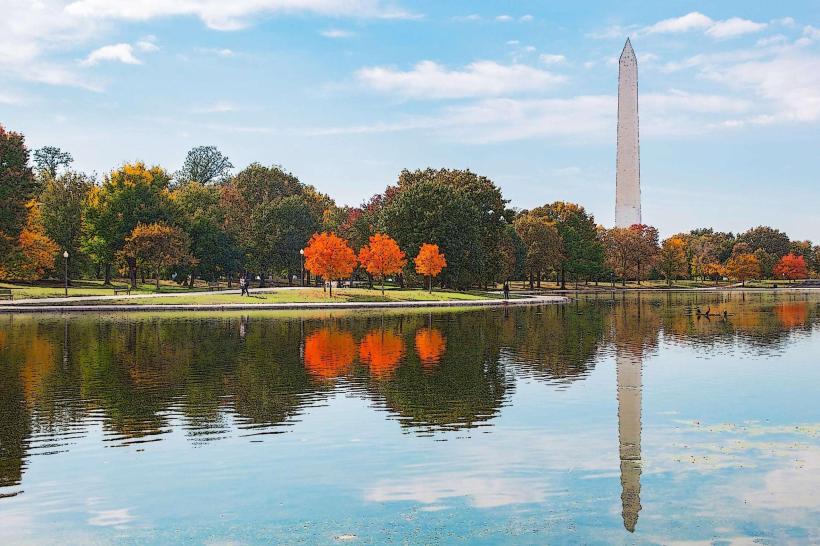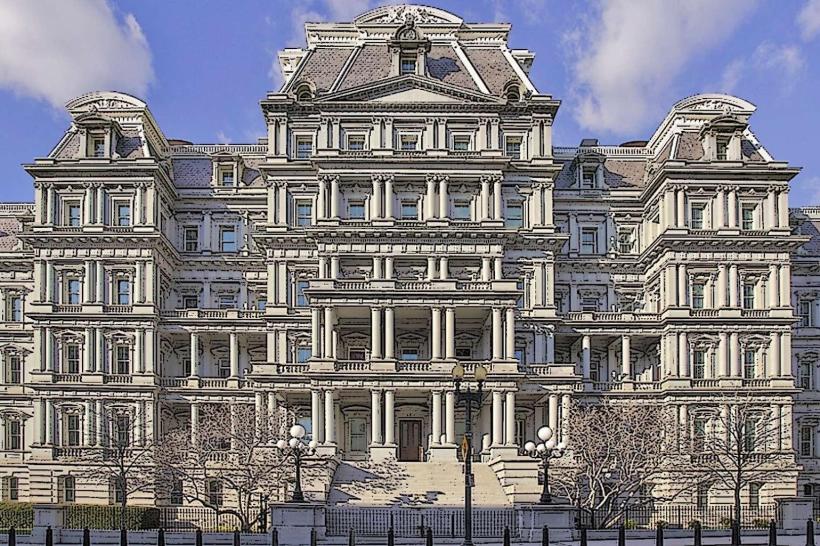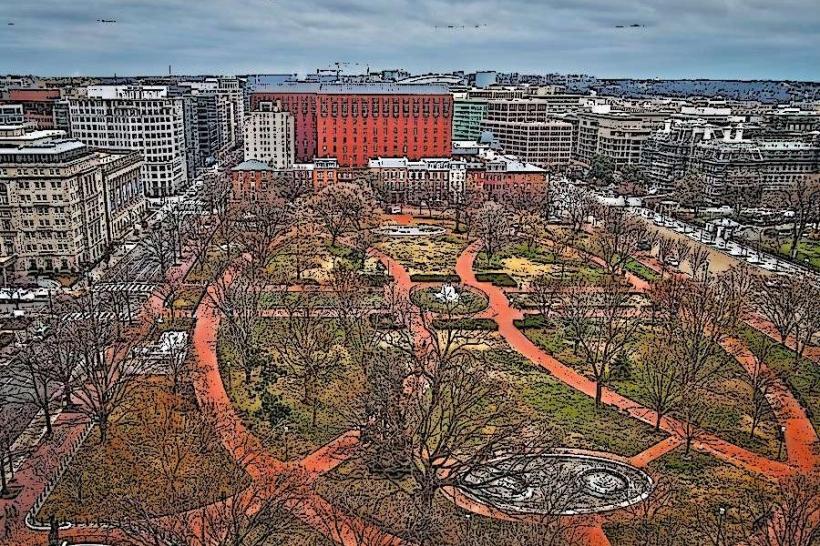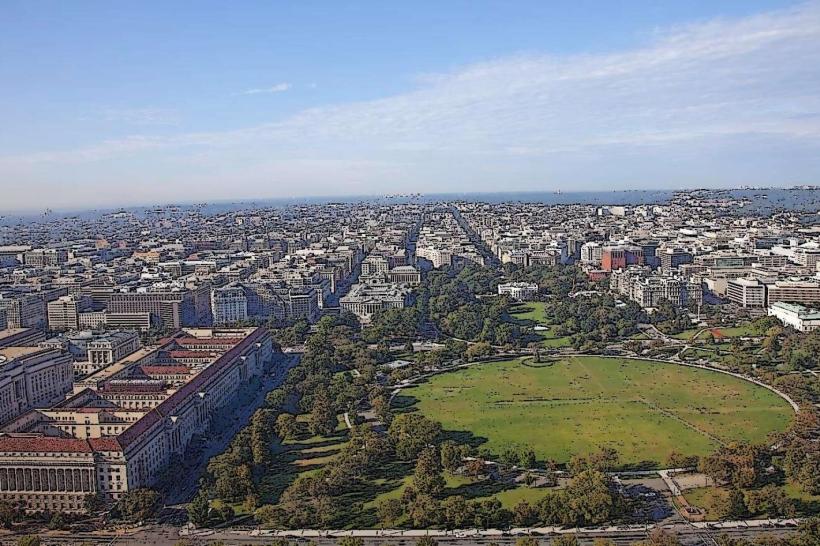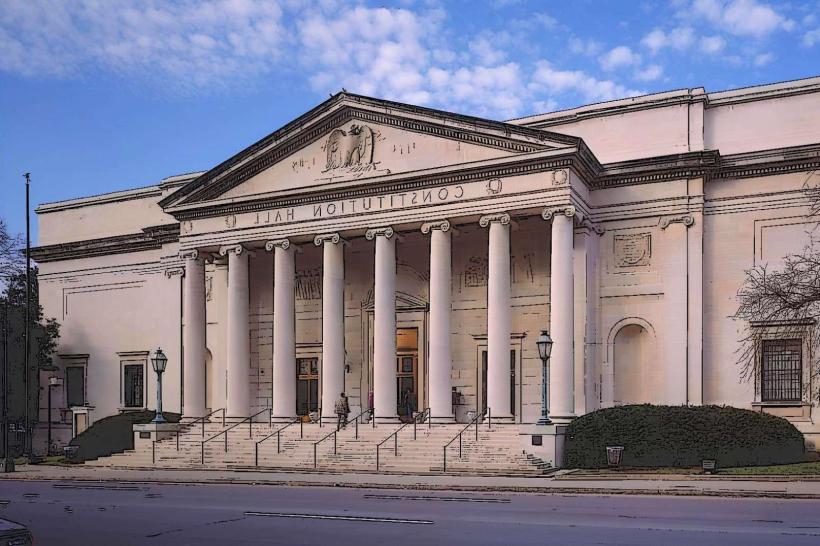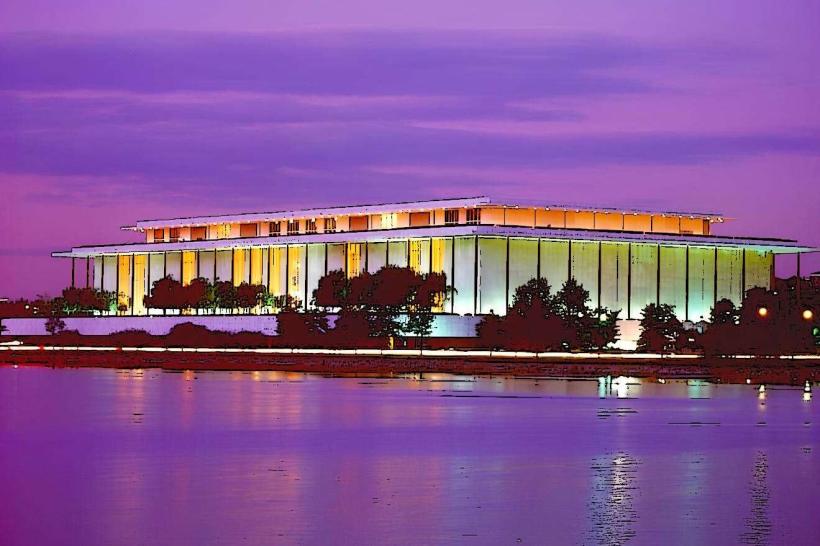Information
Landmark: Scott CircleCity: Northwest Washington
Country: USA Washington DC
Continent: North America
Scott Circle, Northwest Washington, USA Washington DC, North America
Scott Circle is a distinguished traffic circle and small urban park located in Northwest Washington, D.C., at the intersection of Massachusetts Avenue NW, Rhode Island Avenue NW, and 16th Street NW. It serves as both a crucial traffic junction and a historic public space, blending transportation functionality with commemorative and aesthetic qualities.
Location and Urban Context
Scott Circle lies just north of the downtown core and is part of the greater Dupont Circle and Kalorama neighborhoods, areas known for their historic architecture, embassies, and vibrant cultural scenes. Positioned along Massachusetts Avenue, often referred to as “Embassy Row,” the circle acts as a gateway between the central business district and some of Washington’s most prestigious residential and diplomatic zones.
Historical Significance
The circle is named in honor of General Winfield Scott, a prominent U.S. Army general and national hero of the Mexican-American War and the early years of the Civil War. His military career spanned over five decades, and he is remembered for his leadership and strategic acumen.
Scott Circle was originally designed as a landscaped park with statuary commemorating General Scott, including a bronze statue that was relocated in the early 20th century to a nearby park to make way for increased vehicular traffic. Despite this, the circle maintains its historical association with Scott and serves as a visual reminder of his legacy.
Design and Features
Unlike some of the larger circles in Washington, Scott Circle features a compact but elegantly maintained green space at its center, characterized by:
Landscaped Park Area: The inner park is landscaped with mature trees, shrubs, and well-kept lawns that provide a peaceful green refuge within the urban environment.
Pedestrian Walkways: Sidewalks and pathways enable pedestrian access across and around the circle, connecting adjacent neighborhoods and business districts.
Seating and Lighting: Benches and classic street lamps enhance the usability and atmosphere of the space, offering comfort for passersby and residents.
Traffic Configuration: The circle manages the flow of traffic from several major avenues, balancing efficient vehicular movement with pedestrian safety.
Usage and Community Role
Scott Circle plays several roles in the daily life of Washington, D.C.:
Transportation Nexus: It is a key node for vehicular traffic and bus routes, providing important connectivity within the city’s street network.
Neighborhood Amenity: The small park offers a green respite for nearby residents, workers, and visitors, serving as a place to rest or socialize.
Diplomatic and Cultural Setting: Surrounded by embassies, offices, and cultural institutions, the circle contributes to the dignified ambiance of the area.
Public Events: Occasionally, Scott Circle serves as a venue for smaller community gatherings or ceremonial events.
Accessibility and Transportation
Scott Circle is well-connected and accessible:
Metro Access: The closest Metro station is Dupont Circle station (Red Line), located about half a mile away, with multiple bus routes serving the circle itself.
Bus Services: Several Metrobus lines run through or near Scott Circle, facilitating connections to other parts of the city.
Pedestrian Access: Well-marked crosswalks and sidewalks support safe and easy pedestrian movement.
Bicycle Facilities: Capital Bikeshare stations and bike lanes nearby promote cycling as an alternative transportation option.
Surrounding Landmarks and Institutions
Scott Circle is surrounded by notable architectural and cultural landmarks, including:
Elegant historic residences and embassy buildings lining Massachusetts Avenue.
Nearby institutions such as the National Geographic Society headquarters and the Cosmos Club.
Proximity to the neighborhoods of Dupont Circle, Kalorama, and Logan Circle, each rich in history and cultural activity.
Various restaurants, galleries, and shops contributing to the local urban fabric.
Summary
Scott Circle stands as a refined and historically resonant urban space in Washington, D.C., combining transportation importance with a quiet, green enclave. Named for General Winfield Scott, the circle reflects both the city’s military heritage and its evolving urban identity. Its strategic location amidst diplomatic, cultural, and residential districts makes it a vital and distinguished part of the capital’s streetscape, offering both utility and aesthetic appeal to residents, workers, and visitors.

